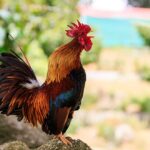Before we dive into the reasons why Asif Ali Gohar chose Pakistan for his project, let’s take a look at what his project is. Asif was only 12 when he moved to Germany along with his family and has been residing there for the past two decades. While working on a school project Asif discovered veganism and researched vegan alternatives to leather. We all know that some of the greatest entrepreneurs started out young, same was the case with Asif Ali Gohar. He started with some home based experiments during his time at school. However, he was not able to produce any results due to a lack of resources and equipment.
Later on, he got accepted into the University of Hamburg where he pursued his degree in Business Administration. While at the University, he was able to conduct scientific research and come up with methods that allowed him to manufacture artificial leather. He was able to configure a process that allowed him to convert rice into leather sheets using acetic acid and yeast. He converted rice into a slime-like polymer which when dried out resembled animal leather. Now Asif wants to produce rice based vegan leather commercially and has chosen Pakistan for his project.
There are several reasons for choosing Pakistan. Starting off with the most important one, Pakistan is a major rice producer. According to the Foreign Agricultural Service of the US Department of Agriculture, Pakistan produced 8.9 million tons of rice in the year 2021-2022. This is a record harvest for Pakistan. Despite this, Pakistan is unable to benefit from its rice trade and rice exports of the country only amount to 3.8 million tons. A number of factors, such as a global supply chain disruption, high transportation costs and competitiveness have resulted in a stagnant rice export quantity over the years. Asif wants to utilize the unused potential of the rice industry to manufacture finished capital intensive goods that would help Pakistan with its exports. Secondly, Pakistan is also a major player in the global leather market. There are a total of 800 tanneries in the country that can produce a substantial amount of leather which can then be exported to international markets. However, the leather industry has been losing revenue lately due to a decline in the demand for animal based leather products.
Ever since veganism became popular, there has been an increase in the demand for vegan products and conversely a decline in animal based products. Asif wants to seize this opportunity by shifting the leather production of Pakistan to vegan leather and benefit from the rising demand for vegan leather. Owing to a high rice produce and an already established leather industry, he believes that Pakistan is an ideal place to start the production of vegan leather. But more importantly, he is a patriot and loves his home country. He thinks that the transition to vegan leather would help Pakistan’ economy enormously.















